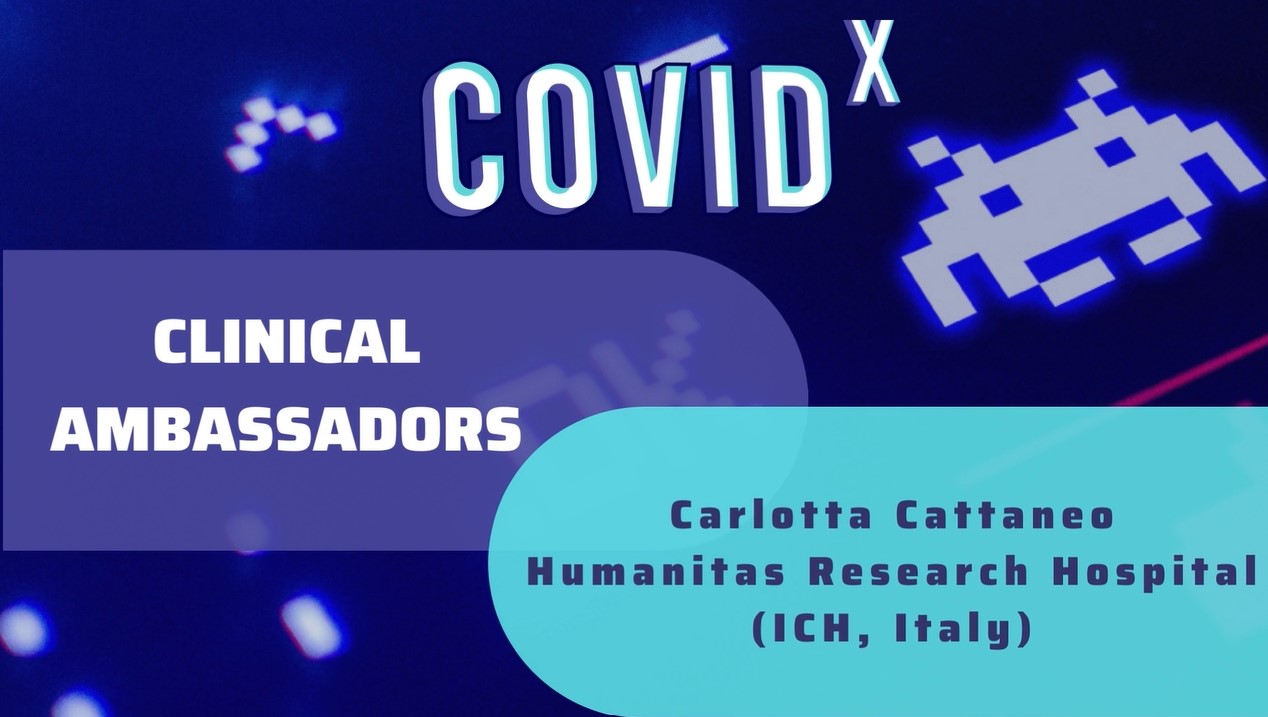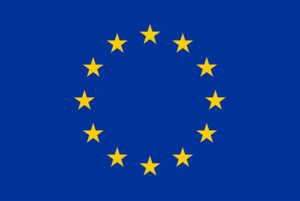Click here to watch the video!
In this interview, COVID-X clinical ambassador Carlotta Cattaneo is sharing her unique experience of participating in the project as a member of the HUMANITAS RESEARCH HOSPITAL (ICH), one of the COVID-X clinical partners.
Get to know what she answered about the project, her organizations’ experience of working with SMEs, the impact of the solutions and if she would recommend other hospitals to work with start-ups!
Meet the COVID-X Clinical Partner:
Humanitas Research Hospital (ICH) is one of the COVID-X clinical sites and is working with SMEs within the programme. Today we interview Carlotta Cattaneo. Get to know what our clinical ambassador has to say about the COVID-X programme, her experience of working with SMEs, the impact of the solutions and if she would recommend other hospitals to work with tech startups!
HUMANITAS is a specialized hospital and research center. It hosts specialized centers for the treatment of cancer as well as cardiovascular, neurological and orthopaedic diseases. It’s also home to an Ophthalmology Center, a Fertility Center and a highly specialized Hematological unit.
Humanitas focuses its attention on clinical care quality and assistance of people through a continuous improvement of patients’ conditions. As an institute for patient care and treatment with a scientific orientation, Humanitas is constantly widening its effort in research in order to contribute to scientific knowledge expansion. The final aim of Humanitas research is to provide high accuracy diagnostics, better patient care and promote collaboration among clinical and scientific bodies across countries.
Meet the COVID-X Clinical Ambassadors:
Carlota Cattaneo is the head of Business Innovation and Artificial Intelligence at HUMANITAS Group. Let’s get to know more about this woman in charge of initiating and developing strategic opportunities to build pilot and scale digital AI based solutions in the healthcare field for the HUMANITAS group. Carlotta has over 15 years of experience in business strategy and a background as an operation manager in the Digital sector.
- Why did you join COVID-X?
Well, we decided to participate in Covid X for many reasons. The most important one is related to the particular role that our country had in the Pandemic. Italy, as you may know, was among the first countries affected by Covid-19 and Northern Italy, where Humanitas is located, was the area with the highest number of victims. So participating in this project seems to have a concrete way to fight Covid-19 supporting the best companies already active in the market to validate their product, helping them to grow rapidly in Europe. IIn addition to our ongoing research activity, we wanted to open the door to those solutions that had a real chance to save lives.
- What did you get the most from the project?
This project is teaching us a lot. HUMANITAS, with Hospital San Carlos in Spain and Caroline is one of the clinical partners involved in the validation of the single solutions and is also in charge of the monitoring of all the pilots for both single and team solutions. Thanks to this role, we have the chance to know closely the proposed solutions and the teams behind them, giving us the opportunity to learn a lot. Given the urgency of finding solutions to fight a Pandemic, Covid X is a true acceleration program in the sense that it’s a very fast paced program and requires a lot of commitment. This is probably the most challenging aspect of the program, but it’s fine to see the expertise, dedication and professionalism of the teams. Speaker. This is something that is good for Europe’s competitiveness and this is why we joined the program and what we get the most.
- How was your experience working with a technical startup/SME?
In the first Open Call, we work with a company that develops a solution to optimize the Covid-19 fast? testing process. And now we are working with other two AI based companies. Both of them focused on imaging. One is designed for lung disease detection and classification and the other predicts the mortality risk of a particular patient. All of these solutions aim to produce data driven improvements in the first case on the time and cost of hospitals lab to detect carbonate. The other two by providing real support for early diagnosis of the disease and by providing important alerts on the possible evolution of the disease. So, HUMANITAS as an Artificial Intelligence Center focuses on developing models to support clinical decision making through high base research. So we share the same language with these companies and it’s very satisfying to help them bring added value to their product
- Why do you think other healthcare providers shall use the solutions?
Well, basically the reason why healthcare providers should use these solutions is the tangible impact they have. The solutions save time, optimize costs and processes and provide real support for clinical decision making. In a pandemic environment where timely and efficient responses are crucial, these solutions could bring significant improvements in disease management and care and thus have a positive impact on patient life which is what really matters
- What do you think is the impact of the overall programme?
Well, from my perspective this program has the great merit of having pointed out the importance for clinical providers to actively work side by side with innovative companies. The future of healthcare as Covid-19 stressed a lot, is closely tied to new technologies, not just high base ones. The ultimate goal is to bring value to patients. We can’t forget them and for that to happen, the cross fertilization process is paramount. Healthcare providers must open up to the technology world and vice versa, acquiring a common language, and improving mutual knowledge to produce a solution of increasing value, impact, precision and safety. So basically this is the real impact of this program.






